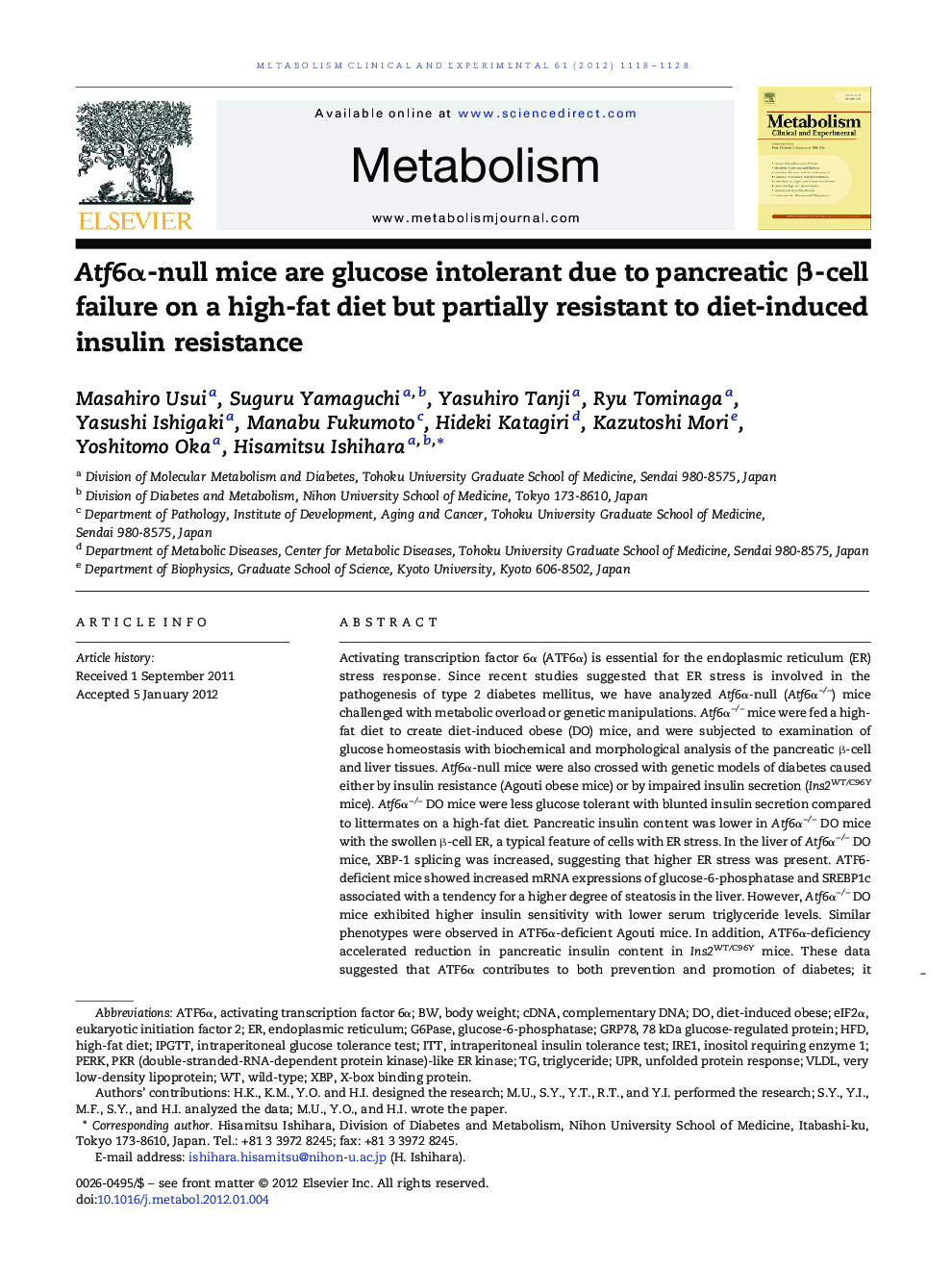| Article ID | Journal | Published Year | Pages | File Type |
|---|---|---|---|---|
| 5903674 | Metabolism | 2012 | 11 Pages |
Activating transcription factor 6α (ATF6α) is essential for the endoplasmic reticulum (ER) stress response. Since recent studies suggested that ER stress is involved in the pathogenesis of type 2 diabetes mellitus, we have analyzed Atf6α-null (Atf6αâ/â) mice challenged with metabolic overload or genetic manipulations. Atf6αâ/â mice were fed a high-fat diet to create diet-induced obese (DO) mice, and were subjected to examination of glucose homeostasis with biochemical and morphological analysis of the pancreatic β-cell and liver tissues. Atf6α-null mice were also crossed with genetic models of diabetes caused either by insulin resistance (Agouti obese mice) or by impaired insulin secretion (Ins2WT/C96Y mice). Atf6αâ/â DO mice were less glucose tolerant with blunted insulin secretion compared to littermates on a high-fat diet. Pancreatic insulin content was lower in Atf6αâ/â DO mice with the swollen β-cell ER, a typical feature of cells with ER stress. In the liver of Atf6αâ/â DO mice, XBP-1 splicing was increased, suggesting that higher ER stress was present. ATF6-deficient mice showed increased mRNA expressions of glucose-6-phosphatase and SREBP1c associated with a tendency for a higher degree of steatosis in the liver. However, Atf6αâ/â DO mice exhibited higher insulin sensitivity with lower serum triglyceride levels. Similar phenotypes were observed in ATF6α-deficient Agouti mice. In addition, ATF6α-deficiency accelerated reduction in pancreatic insulin content in Ins2WT/C96Y mice. These data suggested that ATF6α contributes to both prevention and promotion of diabetes; it protects β-cells from ER stress and suppresses hepatosteatosis, but plays a role in the development of hyperlipidemia and insulin resistance.
